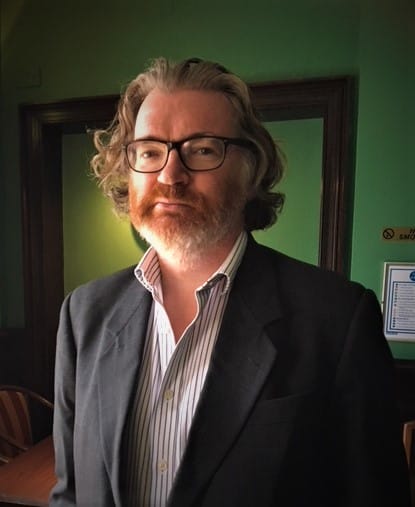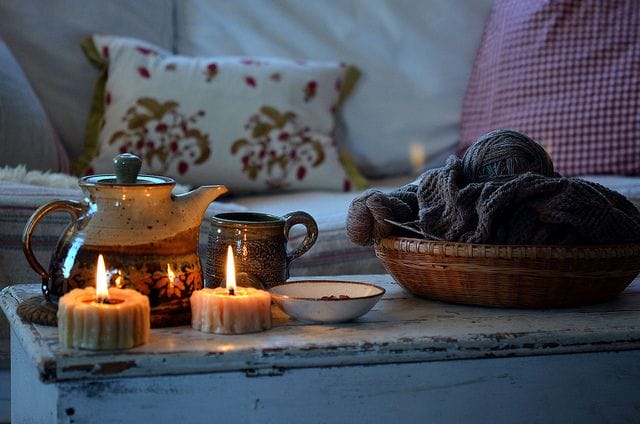
A chat with filmmaker Paul Duane
First Fortnight caught up with director Paul Duane to talk about his hypnotic film on Greek folk music and tracing the steps of the KLF
“While you live, shine.Have no grief at all.Life exists a short while,And time demands its fee. “
– from a Greek mirologia, oldest known song lyrics carved around 1BC
While You Live, Shine – which had a gala screening at the Dublin Greek Film Festival 2018 – is a rumination on the traditional music of the isle of Epirus. It’s a place where some of the oldest music in the Western world is still played and enjoyed as it has been for centuries, preserved and celebrated in an annual festival when emigrants return from the mainland, or further afield, to reconnect through the medium of music and dance.
It’s an immersive sonic and visual feast that leaves the viewer feeling they’ve looked into a way of life that the 21st century has left behind, with an uplifting message of bringing a community together through its art and heritage.
First Fortnight caught up with director Paul Duane, who has several films under his belt, including Barbaric Genius, an acclaimed documentary about writer John Healy, and Very Extremely Dangerous, a film on country musician/bank robber Jerry McGill, plus there’s a project with former KLF man Bill Drummond on the way. We started by chatting about the recent protests on the housing crisis, which Paul said have only served to make him more positive about the state of Irish society.
“It’s good to see a whole generation growing up with an idea of what protest should be. Back in the day we had CND and that but it was a lot less…I think people were a bit abashed about protest, apart from a few fantastic people who’ve been doing it all their lives. There wasn’t the mass protest you see on the streets now. I bring my daughter on them, the Repeal marches, the anti-Pope one, the one in memory of the Magdalene laundries. It’s great to see kids growing up with the idea that if you don’t like something, you can change it, that the ballot box every four years is not the be all and end all. It’s a good to see Ireland change.”
While You Live, Shine premiered at the blizzard-hit Dublin film festival in 2018, and has had several select screenings since. Paul says:
“It’s a difficult film to pitch, it doesn’t have a conventional story or hook. It was made very cheaply with arts council funding, they gave me a free hand to do what I wanted and as a result it ended up being a very freeform, very intangible film. It’s difficult to put into words but people get a very strong reaction from watching it. I thought I’d make a short but it ended up being a feature-length film. I had read an article in the NYT about Epirus and the festival that goes on there, it’s in northeastern Greece at the border of Albania, and the article talked about this place being kind of a holdover from ancient times, where its music still had a lot of continuity from the distant past.
“Chris King, this American musicologist discovered old 78s recorded in the 20s and was reissuing those and when he went there, he realised the music still had a continuity in a way that music elsewhere, whether its American music or Irish music from the far-distant past, isn’t really played quite so much in that community-based way. Folk music is often a museum-piece kind of thing, but there, it’s still a family thing, parents pass it down through the lineage and the dancing, as well, is still vital. They do these extraordinary dances where the whole community is in a circle and its really moving to watch.”
How did you go about making the film?
“First of all I got in touch with Chris, he’s an amazing, erudite, strange man, very good company. I went over there with no real plan. I hadn’t got the chance to do any real recce in advance to check it out, I just went with my cameraman Paddy and my line-producer Nick (I was recording sound) and we basically shot whatever we thought was interesting and after 10 days, came back with the bones of the film. It was mostly visual/musical stuff but with some interviews which we did in Greek and translated afterwards, I didn’t speak any Greek. There are very little words in the film, its mainly the music and visuals that speak to people.
It’s different to anything I’ve done before. Paddy is a very gifted cameraman, so he ended up being co-author of the film in a way, as it came out of his eye and ear for music. There’s a real rhythm to it. People seem to come out of it lifted up and buzzed, which I think is an important thing with the way things are with the world at the moment. Everyone’s in need of some life-affirming and enhancing art.
We realised Chris would be kind of a main character. We needed to start with him at his home in North Carolina with his particular misanthropic view of America and life and of people and show how he had become besotted with the whole idea of Greece so he narrated some stuff that was important, paraphrasing some passages from a book he’s written. He kind of guides you into the film. A friend described him as someone who brings you to a festival and leaves you there, and then you realise you’re on your own, maybe kind of high and have to figure it out for yourself as you go along. We don’t put a lot of markers on the way. I’m not a fan of those over-explained things, in a sense, it was a way of exploring how little you could tell people and they’d still understand it and it works. People have said it feels like they’ve gone on a journey.”
It seems one of the film’s messages is the importance of music and dance in bringing people together and transporting them from mundane reality and reconnecting with their sense of self and community.
“Its good for people’s mental health and awareness of life – its important to see things and consume art that underlines your humanity and membership of the human race. And the film is very much about country and of finding a place within a community and how difficult it is to survive if you feel like you’re outside of a community. My politics and world view is very much based around people working together, being a unit. I believe when people get together they can change things. It’s also true of culture, it’s true of music, there’s no politics in the film but its very much about community.”
Paul has a number of fascinating projects in the works, including What Time Is Death? about artists Jimmy Cauty and Bill Drummond, of 80s/90s ‘pop terrorists’ The KLF, whose sheep-carcass dumping exploits, burning a million quid, etc make far more sense when you consider their current devotion to making art that can’t be used for commercial gain. They have set up an outfit called Callender, Callender, Cauty & Drummond in conjunction with a couple of undertakers and are building a “People’s Pyramid” in Liverpool made from the ashes of people who have died and undergone a MuMufication. He says: “It’s all very complicated and strange but it’s fun.” Duane also filmed Drummond for a separate project documenting his artistic process of travelling to various cities to perform odd practical tasks, like building beds and baking and delivering cakes inside a particular area circumference. Paul says of Bill:
“He’s one of the most interesting and inspiring people, when he writes about art and music, it makes you feel empowered and positive, he has a great analysis of popular culture. Some of it can be gloomy but he’s a positivist as much as a Scottish Presbyterian can ever be. I knew from reading about him that he has absolutely no interest in addressing his past, all The KLF stuff, but he just happened to be about to plan his 12-year world tour so it was a good time to work with him. He’s set this challenge to go to 12 different cities, each of which has a personal significance to him, and during his stay there, usually about two weeks, could be longer, he carries out various art works he’s developed – the bed building, the cake circle, the soup line. He travels very light, then he has to find people to help him with materials, find people to work with him. What’s most difficult for people to get their heads around is that there’s no financial inducement for him – he’s not making any money on this, he’s spending his money and he’s not rich. He has some things coming in but the music, the money from The KLF is all gone obviously.
It comes down to his decision at a very early age, when he went to art school and realised that if you were a painter, the arbiter of your success would be how much money some rich person would pay you to hang it on his wall. Being an egalitarian at heart, he realised money would have poisoned any feeling of success he might have had and spends his life trying to figure out how to make art that can’t be commodified, that doesn’t become a repository of value. So the work he does now is very ephemeral, it involves people’s reactions to what he’s doing. I suppose you could call it performance art or conceptual art, anything you call it makes it sound kind of pretentious whereas it’s anything but. In the course of doing these things, he talks to people, he makes connections with people, at the start of the film, people will be saying, I don’t understand what he’s doing and by the end, they understand exactly what he’s doing. But you can’t put it into words. you have to see it…”
Looking at your back catalogue as well as future projects, it appears one thread running through is that you are drawn to people who are a little outside of societal norms, on the eccentric side…is that a fair reflection?
“I’m drawn to outsiders. If one insists on finding a common thread, there are difficult middle-aged men in most of my films, many a grumpy eccentric. Bill Drummond asked: ‘Am I one of your problematic older men?’ There tend to be these figures, Chris is one, John Healy, Jerry McGill… there are these characters, male, white, a bit older, maybe not fitting in with society. Chris is definitely a misanthrope but he’s easy to identify, he projects his need for a home on to this place that he’s found. It’s xenitia, a Greek concept like saudade, the Portuguese word for nostalgia for where you grew up. A lot of the Greeks of Epirus move away as it’s a very poor place, very rocky and mountainous so they move to the city and go back in the summer for this festival – and they dance and they sing then they go away again. And they only see each other and their families for a weekend or two a year. Chris is nostalgic for a place he never knew growing up, he’s obsessed with learning Greek and buying a house there. It’s very relatable, everybody wants to find somewhere they can be a part of. He’s never felt at home in America.”
Have you ever felt at home in Ireland or elsewhere?
“No, I never have! Interestingly the date, I began to feel at home in Ireland was the date of the referendum result when a landslide came in to remove the 8th Amendment, I began to feel, yeah, here’s my country. At the age of 52, I feel like the country has changed. Obviously its been happening over a long time, but when I travel and return to Ireland, I genuinely feel delighted to be here. We do have a number of problems but it feels like people are starting to get control of their lives. There’s still the old pork barrel politics, will you build a hospital in the constituency or whatever… but the idea of group dissent, of people going out on the streets now seems to me like, finally, its my country.
The wonderful Finnish filmmaker Aki Kaurismaki, when asked why all his films had happy endings, said “because the world is terrible”. He understood in a world that has enough pain and darkness in it, and while artists can’t hide from that…I tend to shun the modish darkness trend. The news, the Kavanaugh hearings, its all dark as shit, so give me a movie that reminds me why we’re all here. Having a kid changes your attitude too and you realise you have a stake in the ongoing existence of humanity. It’s important for art to point towards how the world can be a better place. For anything I’m considering doing at the moment, while there’s a commercial consideration and I do desperately want to make films that people will see, that are entertaining but also films that make a contribution.”
While You Live, Shine launched at the Dublin Greek Film Festival, Saturday, October 13, 2018. http://www.greekfilmfestival.ie/while-you-live-shine.html
What Time Is Death? screens at the Dublin Film Festival 2019 in the Irish Film Institute on Tuesday, February 26 at 6.30pm




